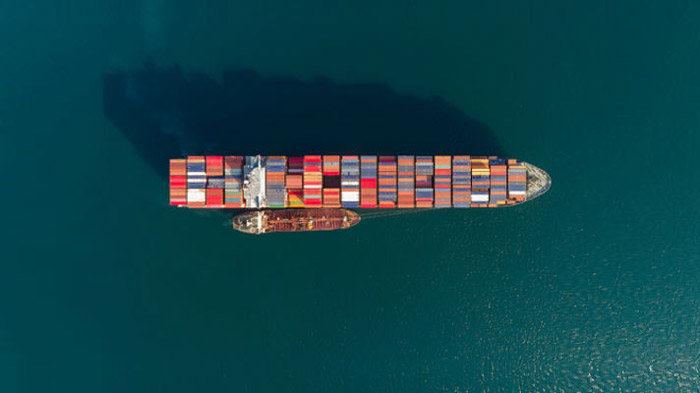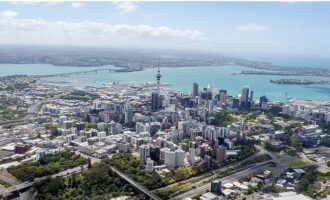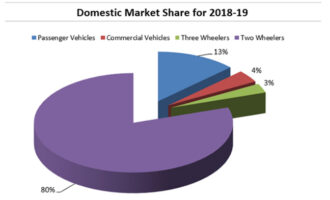
IMO adopts guidelines for implementation of lower sulphur limit
The International Maritime Organization (IMO) has approved and adopted a comprehensive set of guidance and guidelines to support the consistent implementation of the lower 0.50% limit on sulphur in ships’ fuel oil, which will enter into effect from 1 January 2020. Related draft MARPOL amendments were also approved.
The 2020 rule will bring in considerable benefits for the environment and human health. The stricter limit will be applicable globally under IMO’s MARPOL treaty. (In designated emission control areas (ECAs), the sulphur limit will remain at 0.10%.)
The 1 January 2020 implementation date was adopted in 2008 and confirmed in 2016. IMO has been working with member states and the industry to support implementation of the new limit, including the preparation of amendments to MARPOL Annex VI and the development of guidance and guidelines.
Enforcement, compliance with and monitoring of the 2020 sulphur limit is the remit and responsibility of states party to MARPOL Annex VI. Most ships are expected to utilize new blends of fuel oil which will be produced to meet the 0.50% limit on sulphur in fuel oil or compliant marine gas/diesel oil.
Guidance on 2020 sulphur limit
The IMO Marine Environment Protection Committee (MEPC), meeting for its 74th session from 13-17 May 2019:
- Adopted 2019 Guidelines for consistent implementation of the 0.50% sulphur limit under MARPOL Annex VI – with sections on the impact on fuel and machinery systems resulting from new fuel blends or fuel types; verification issues and control mechanism and actions, including port State control and samples of fuel oil used on board; a standard reporting format for fuel oil non-availability (fuel oil non-availability report (FONAR); and possible safety implications relating to fuel oils meeting the 0.50% sulphur limit.
- Adopted 2019 Guidelines for port State control under MARPOL Annex VI Chapter 3, providing updated enforcement guidance for provisions including regulation 13 “nitrogen oxides” and regulation 14 “sulphur oxides and particulate matter”.
- Approved Guidance on indication of ongoing compliance in the case of the failure of a single monitoring instrument, and recommended actions to take if the exhaust gas cleaning system (EGCS) fails to meet the provision of the Guidelines.
- Approved Guidance for port State control on contingency measures for addressing non-compliant fuel oil. The guidance covers possible actions to be taken, following discussions between ship, flag State and port State, when a ship is found to have on board non-compliant fuel oil either as a consequence of compliant fuel oil being not available when the ship bunkered fuel oil or the ship identifying through post bunkering testing that the fuel oil on board is non-compliant.
- Approved the 2019 Guidelines for on board sampling for the verification of the sulphur content of the fuel oil used on board ships.
- Approved an MSC-MEPC circular on Delivery of compliant fuel oil by suppliers, subject to approval by the Maritime Safety Committee (MSC 101) in June. The draft circular says that members states should urge fuel oil suppliers to take into account, as relevant: MEPC.1/Circ.875 Guidance on best practice for fuel oil purchasers/users for assuring the quality of fuel oil used on board ships; and MEPC.1/Circ.875/Add.1 Guidance on best practice for fuel oil suppliers for assuring the quality of fuel oil delivered to ships.
- Approved Guidance for best practice for member state/coastal states. This includes best practices intended to assist member states in carrying out their responsibilities under MARPOL Annex VI, to ensure effective implementation and enforcement of statutory requirements of that Annex. The guidance says that member states/coastal states should consider actions deemed appropriate, under domestic legal arrangements, with respect to promoting the availability of compliant fuel oils, consistent with regulation 18.1 of MARPOL Annex VI; and member states or other relevant authorities desiring to do so may decide to establish or promote a licensing scheme for bunker suppliers.
The MEPC 73 in October 2018 had already approved guidance on the development of a ship implementation plan for the consistent implementation of the 0.50% sulphur limit under MARPOL Annex VI (MEPC.1/Circ. 878).









